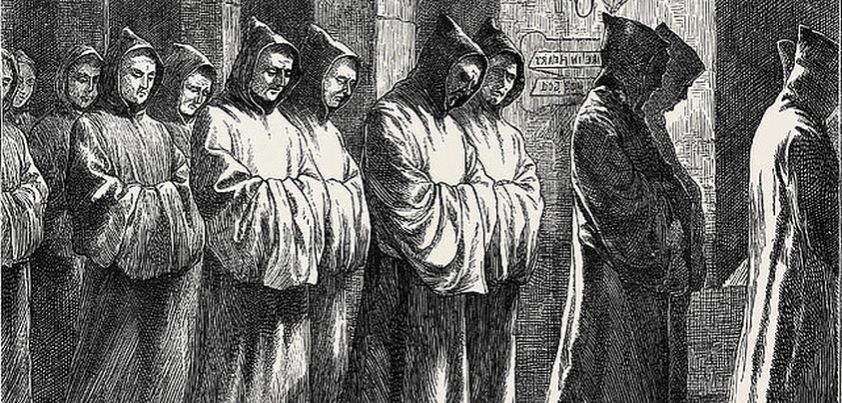 The recently released 6th Assessment Report by the UN Climate Change Panel presents a pessimistic assessment of the world’s progress in controlling global warming. That makes this an appropriate time to feature science fiction writer Jason Gurley’s Quiet Town, a grim picture of what may be the future of low-lying townships along world coastlines. Bev, her son Benji, and annoying neighbor Ezze are among the few remaining residents of a small town in which the rising ocean has just breached the sea wall. Experts had originally predicted that this would not happen for fifty years: it had taken five! More…
The recently released 6th Assessment Report by the UN Climate Change Panel presents a pessimistic assessment of the world’s progress in controlling global warming. That makes this an appropriate time to feature science fiction writer Jason Gurley’s Quiet Town, a grim picture of what may be the future of low-lying townships along world coastlines. Bev, her son Benji, and annoying neighbor Ezze are among the few remaining residents of a small town in which the rising ocean has just breached the sea wall. Experts had originally predicted that this would not happen for fifty years: it had taken five! More…
After the Ball / Dance
 The major themes of this story from Leo Tolstoy are the circumstances that determine “good” and “evil”, and the morality of blaming a child for the actions of his/her father. The protagonist is captivated by a beautiful woman. They attend an elegant ball, where he is impressed by the demeanor of her father, a senior military officer. His feelings change the next morning when he witnesses the father officiating at the brutal punishment of a deserting soldier. Other themes: romance, judging by appearances, point of view (cruelty vs. duty), class, moral indignation vs. naivety. More…
The major themes of this story from Leo Tolstoy are the circumstances that determine “good” and “evil”, and the morality of blaming a child for the actions of his/her father. The protagonist is captivated by a beautiful woman. They attend an elegant ball, where he is impressed by the demeanor of her father, a senior military officer. His feelings change the next morning when he witnesses the father officiating at the brutal punishment of a deserting soldier. Other themes: romance, judging by appearances, point of view (cruelty vs. duty), class, moral indignation vs. naivety. More…
Waters of Gold
 This Chinese folktale retold by Laurence Yep is in two parts. First, readers encounter the kind-hearted Auntie Lily who has spent so much of her money helping others that she now lives in poverty. Her fortunes change for the better when she helps a filthy, foul-smelling beggar who everyone else ignores. Later, her greedy neighbour experiences a different result when, hoping for a similar reward, she helps the same man. The two parts show different sides of the “be kind to others” moral: kindness for kindness’s sake brings its own rewards; kindness in expectation of reward usually leads to disappointment. More…
This Chinese folktale retold by Laurence Yep is in two parts. First, readers encounter the kind-hearted Auntie Lily who has spent so much of her money helping others that she now lives in poverty. Her fortunes change for the better when she helps a filthy, foul-smelling beggar who everyone else ignores. Later, her greedy neighbour experiences a different result when, hoping for a similar reward, she helps the same man. The two parts show different sides of the “be kind to others” moral: kindness for kindness’s sake brings its own rewards; kindness in expectation of reward usually leads to disappointment. More…
With the Photographer
 This story by Stephen Leacock makes use of irony and hyperbole to satirize artistic arrogance. A man who visits a professional photographer to have a portrait taken is humiliated during his sitting. The photographer not only criticizes every aspect of his facial features, but also insists on a number of different posture changes to hide what he considers flaws. Later, when the man views the developed product, his face has been so artificially altered as to be unrecognizable. Other themes include appearance and the disconnect between self-perception and the way others see us, insecurity, body shaming, humiliation, anger and frustration. More…
This story by Stephen Leacock makes use of irony and hyperbole to satirize artistic arrogance. A man who visits a professional photographer to have a portrait taken is humiliated during his sitting. The photographer not only criticizes every aspect of his facial features, but also insists on a number of different posture changes to hide what he considers flaws. Later, when the man views the developed product, his face has been so artificially altered as to be unrecognizable. Other themes include appearance and the disconnect between self-perception and the way others see us, insecurity, body shaming, humiliation, anger and frustration. More…
Secret Worship
 In this story by Algernon Blackwood, a man makes a spur of the moment decision to visit his old boarding school in a remote German village. Although life and discipline inside the fortress-like school operated by a devout Protestant brotherhood was strict, he recalls his time there fondly. When he arrives, everything appears unchanged and he is welcomed with open arms. However, leaving is not so easy… the not-so-devout brotherhood was a cover for a satanic cult which now has eyes on his soul! Themes include nostalgia, isolation, appearances vs. reality, satanism, human sacrifice, chance, the supernatural. More…
In this story by Algernon Blackwood, a man makes a spur of the moment decision to visit his old boarding school in a remote German village. Although life and discipline inside the fortress-like school operated by a devout Protestant brotherhood was strict, he recalls his time there fondly. When he arrives, everything appears unchanged and he is welcomed with open arms. However, leaving is not so easy… the not-so-devout brotherhood was a cover for a satanic cult which now has eyes on his soul! Themes include nostalgia, isolation, appearances vs. reality, satanism, human sacrifice, chance, the supernatural. More…